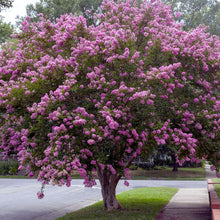Crape Myrtle Trees
The premier flowering tree of the South. These trees are a favorite of landscapers. Also known as lagerstroemia, Crapemyrtle, and Crepe Myrtle, these flowering trees are extremely low maintenance once they are established.
More Information



